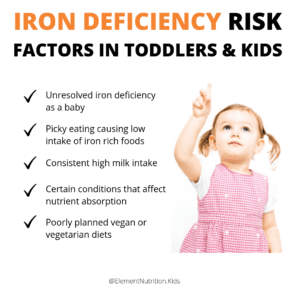As a parent, it is essential to ensure that your child gets all the necessary nutrients to stay healthy and grow strong. One of the critical components of a child’s diet is protein. Protein is a macronutrient that plays a vital role in the development of muscles, bones, and organs. In this article, we will discuss why protein is important for kids and how it contributes to their growth and overall health.
Why is Protein Important for Kids?
Protein is essential for children as it helps in building and repairing tissues, including muscles, bones, and organs. It also aids in the formation of enzymes, hormones, and antibodies that are necessary for the proper functioning of the body. The amino acids that make up proteins are the building blocks of the body, and they play a crucial role in the growth and development of children.
Protein also helps to keep children feeling full and satisfied for longer, reducing the likelihood of overeating or snacking on unhealthy foods. Studies have shown that consuming protein-rich foods can improve cognitive function and academic performance in children, making it a vital component of their diet.
How Much Protein Do Kids Need?
The amount of protein a child needs depends on their age, gender, weight, and activity level. The recommended dietary allowance (RDA) for protein varies from 13 grams for infants to 52 grams for teenage boys. It is important to note that too much protein can also be harmful, causing an increase in weight, dehydration, and an increased risk of kidney damage. It is best to consult a pediatrician or a registered dietitian to determine the appropriate amount of protein for your child.
Sources of Protein for Kids
There are many sources of protein that are suitable for children. Animal-based sources such as meat, fish, poultry, and dairy products are excellent sources of complete proteins that contain all the essential amino acids. Plant-based sources of protein include legumes, nuts, seeds, tofu, and whole grains. It is essential to incorporate a variety of protein sources into your child’s diet to ensure that they are getting all the necessary amino acids.
Frequently Asked Questions (FAQs)
- How can I ensure that my child is getting enough protein in their diet?
You can ensure that your child is getting enough protein by incorporating protein-rich foods into their diet such as meat, fish, poultry, dairy products, legumes, nuts, seeds, tofu, and whole grains.
- Can my child get too much protein?
Yes, too much protein can be harmful, causing an increase in weight, dehydration, and an increased risk of kidney damage.
- What are the consequences of protein deficiency in children?
Protein deficiency in children can lead to stunted growth, weakened immune system, and muscle wasting.
- Can a vegan or vegetarian diet provide enough protein for kids?
Yes, a well-planned vegan or vegetarian diet can provide enough protein for kids. Plant-based sources of protein include legumes, nuts, seeds, tofu, and whole grains.
- Are protein supplements necessary for kids?
In most cases, protein supplements are not necessary for kids as they can get all the necessary protein from whole foods. It is best to consult a pediatrician or a registered dietitian before giving your child any supplements.
Conclusion
Protein is a critical component of a child’s diet as it helps in the growth and development of muscles, bones, and organs. It also aids in the formation of enzymes, hormones, and antibodies that are necessary for the proper functioning of the body. Incorporating protein-rich foods into your child’s diet is essential, and it is best to consult a pediatrician or a registered dietitian to determine the appropriate amount of protein for your child.




